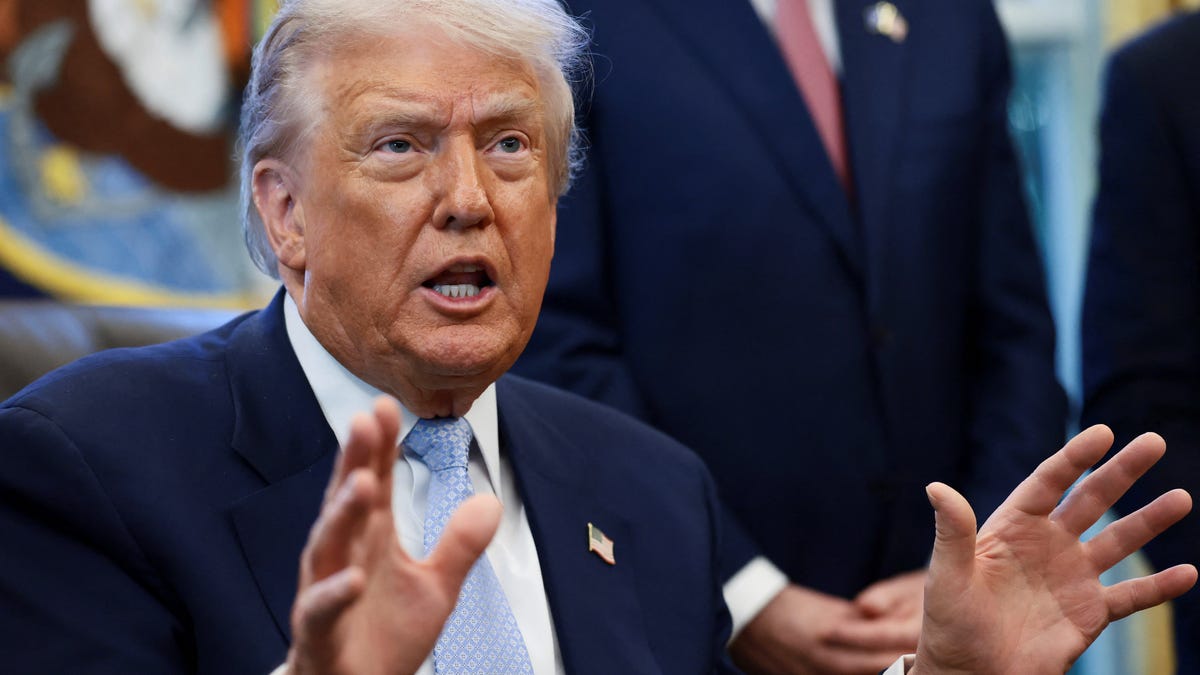Remember the $2,000 checks? The “lifeline” President Trump promised “next year” for millions struggling to make ends meet? Prepare for a reality check: that money might not arrive until mid-2026. That’s not a delay; it’s an economic eternity, a masterclass in shifting goalposts. What exactly changed between “next year” and nearly half a decade later? And who’s truly banking on this extended waiting game, if not the very people who need the cash?
The Real Story Behind the Disappearing Dollars
Initially heralded as swift relief, the concept of $2,000 “tariff dividend” checks was dangled as an imminent solution. Trump’s rhetoric painted a vivid picture of direct rebates, money flowing back to the American people, ostensibly sourced from the nation’s tariff collections. The promise was unambiguous, the timeline seemingly immediate – a boost for consumer spending and a tangible benefit from his economic policies. Yet, with the precision of a magician’s misdirection, the narrative has drastically shifted. A promise of “next year” for these critical funds quietly transformed into a potential delivery in “mid-2026.” This isn’t merely a scheduling conflict; it’s a stark illustration of how quickly political rhetoric can outpace financial reality, leaving a trail of disappointed expectations.
The discrepancy is jarring. From an urgent, near-term injection of cash to a future payout pushed almost four years down the line, the rationale behind this elongated delay remains murky at best. Is it an admission of the initial financial infeasibility of such a widespread payout? Or a strategic move to defer a costly promise beyond a critical election cycle? This isn’t just about waiting longer for a check; it’s about the fundamental contradiction inherent in government messaging. While the idea of a direct stimulus check aims to inject spending into the economy, official Treasury positions frequently advocate for increased American savings and fiscal prudence. This creates a significant ideological friction: does the government genuinely want its citizens to spend and stimulate, or does it prefer them to shore up personal finances, making these proposed stimulus checks appear, at best, a temporary political expedient rather than sound long-term economic strategy? The optics suggest a calculated gamble with public expectation, where the hope of future money serves a more potent political purpose than the actual delivery of funds.
“One senior budget analyst, speaking off the record and with a visible sigh, scoffed, ‘They called it ‘next year’ knowing full well the treasury couldn’t handle that payout without significant political blowback or just plain economic gymnastics. To promise that timeline was either pure delusion or deliberate deception. Mid-2026? That’s not a policy; it’s a future campaign slogan designed to keep a specific voter demographic engaged without ever having to deliver in the short term. The public should be asking where that ‘next year’ money went, and who decided to move the goalposts so drastically.'”
Why This Shell Game Matters to Your Wallet and Your Trust
The impact of this delayed gratification is profoundly felt by the “millions of Americans struggling to make ends meet.” For those who viewed that promised $2,000 as a genuine lifeline—perhaps for rent, groceries, or unexpected medical bills—a four-year deferment isn’t just disappointing; it’s potentially devastating. It highlights a dangerous precedent where economic relief is offered as a potent political talking point, only to be perpetually punted down the road, conveniently past critical election cycles. This erosion of trust, where promises are made and then quietly postponed, chips away at the public’s faith in government accountability.
Let’s be clear: this isn’t charity; it’s a supposed “dividend” from tariffs. The very concept implies a surplus generated from trade policy, an allocation of revenue directly back to the citizens. The significant delay, however, raises critical questions about the actual financial health of these tariff collections and whether such a direct dividend was ever genuinely feasible in the promised timeframe. It forces a cynical look at whether these checks were ever a concrete, implementable plan or merely a powerful, emotive political tool designed to garner support without immediate fiscal obligation. The money, or lack thereof, isn’t the only scandal; the weaponization of hope for political gain is arguably far more corrosive.
The Bottom Line: Don’t Hold Your Breath (Unless You Like Disappointment)
This isn’t just a delay; it’s a masterclass in political elasticity, stretching promises until they become unrecognizable. For those hoping for a direct injection of cash, the message is chillingly clear: don’t hold your breath. The real money isn’t in the checks themselves; it’s in the perpetual hope they inspire, a hope that can be skillfully manipulated across multiple political campaigns. If this pattern continues, every “next year” promise will simply morph into an ever-receding horizon, leaving struggling Americans further in the lurch while the political game plays on, unburdened by immediate financial obligations. The expectation set, the delivery postponed—this is the new playbook for economic policy, and the American taxpayer is left footing the bill, not with a check, but with their dwindling trust.


